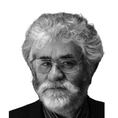While mathematics may be viewed as an abstract creation, its origins lie in the physical world. The need to count animals and share food supplies led to the development of the concept of numbers.
With five-fingered hands, we naturally tended to count in tens. Arithmetic methods were needed to allocate land, organise armies and calculate revenues and taxes. The daily and seasonal cycles and the phases of the moon led to measurements of time and construction of calendars. Preoccupation with the stars and planets drove efforts to predict their motions.
Having emerged from the need to solve practical problems, mathematics has developed powerful and general methods that serve the needs of the physical sciences. Mathematics now pervades our world: it is central in engineering, technology, communications and, to a growing extent, in medicine and biology. A general understanding of the subject helps us to negotiate the modern world.
Maths Week is approaching
Since 2006, Maths Week Ireland has been promoting positive views of maths and highlighting its vital role in our lives. This year, Maths Week runs from October 12th to 20th (a generous week!). Already, more than 80,000 school students have registered and many events are planned — see mathsweek.ie/2024/
READ MORE
One of the highlights of Maths Week is the Hamilton Lecture, organised by the Royal Irish Academy on October 16th each year. The date is significant: it was on that date in 1843 that William Rowan Hamilton, in a brilliant flash of insight, discovered how to multiply quaternions. These new numbers brought fame to Hamilton, but he is much better known for his work on dynamics.
New scientific theories often use mathematical methods developed decades earlier. The two greatest advances in physics in the 20th century were general relativity and quantum mechanics. Both these theories dramatically changed our understanding of the natural world and our ability to explain phenomena on the smallest and largest scales.
Einstein’s theory of general relativity is founded upon Riemannian geometry, developed by Bernhard Riemann around 1850, and greatly extended by Italian mathematicians Ricci and Levi-Civita as tensor calculus.
Einstein’s field equations, relating the curvature of space-time to the distribution of matter, are tensor equations. Remarkably, much of the necessary mathematical apparatus was in place decades before Einstein required it. Equally noteworthy was Hamilton’s prescient mathematical framework for quantum mechanics.
Hamilton’s equations and quantum mechanics
Hamilton’s function, now dubbed the Hamiltonian, and his canonical equations, first appeared in 1833, as an alternative to the equations of Lagrange. But, close to a century later, Hamilton’s methods turned out to be perfectly suited to the needs of quantum mechanics. His mathematical formulation of classical mechanics is fundamental in quantum physics.
The Hamiltonian plays a central role as an operator acting on the quantum wave function. After French aristocrat and physicist Louis de Broglie suggested that all matter has the properties of waves, Erwin Schrödinger, in a sparkling act of prestidigitation, replaced the variables in Hamilton’s function by operators and derived the famous equation that underlies quantum mechanics.
The Hamilton Lecture, to be presented by Prof Laura DeMarco of Harvard University, is entitled The Geometry and Algebra of the Mandelbrot set and will be on Wednesday, October 16th, at 6:00pm — details at ria.ie.
A UCD course on recreational mathematics, AweSums: the Majesty and Magnificence of Mathematics, will be presented this autumn by me — registration is open at ucd.ie/lifelonglearning
Peter Lynch is emeritus professor at the School of Mathematics & Statistics, University College Dublin. He blogs at thatsmaths.com
- Sign up for push alerts and have the best news, analysis and comment delivered directly to your phone
- Join The Irish Times on WhatsApp and stay up to date
- Listen to our Inside Politics podcast for the best political chat and analysis















